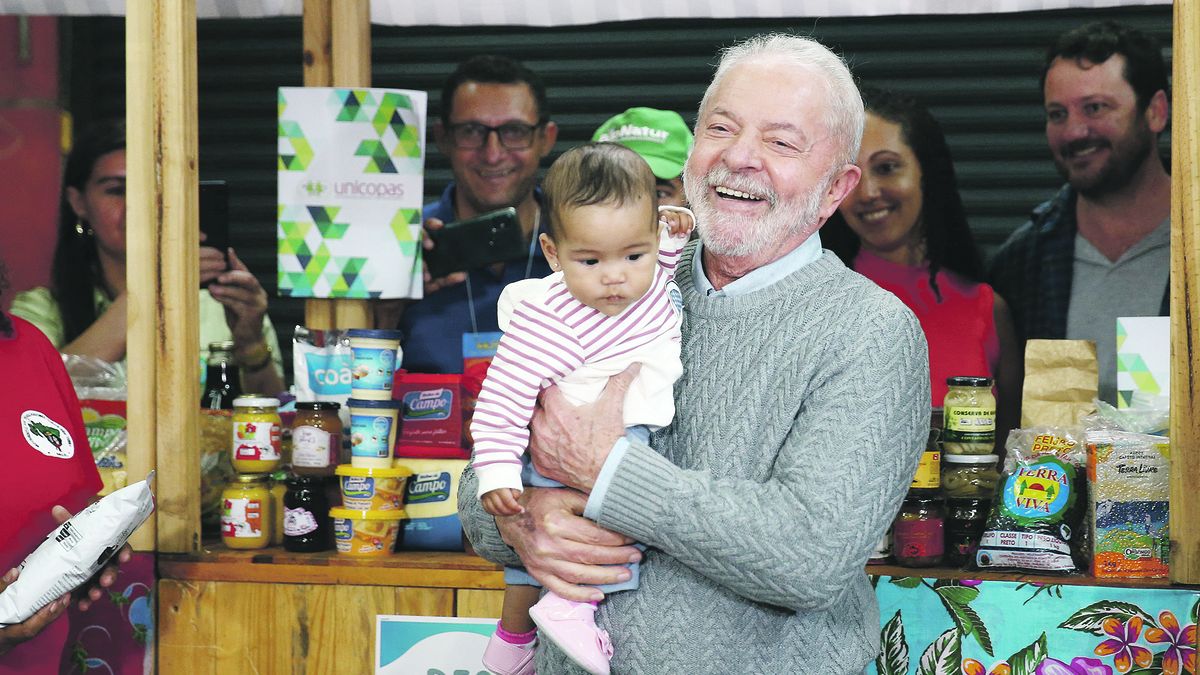Now, she and her seven children and grandchildren, who occupy an abandoned house, are among the 33.1 million Brazilians who suffer from hunger.
The figure, with an increase of 73% in the last two years, according to the Brazilian Network for Research on Food Sovereignty and Security (Penssan), is the focus of a political battle before the presidential elections in October.
Holding a half-empty can of powdered milk for her grandchildren, ages 15 months, two and three, Da Silva shows them around the house where they live. It has no bathroom, water or electricity. “Sometimes (the children) ask for food and I don’t have a cookie, or bread, to give them,” he says through tears in Poço da Cruz, a rural area in the state of Pernambuco (northeast).
Rising food prices forced the family to beg. “I pray that God ends my suffering,” says the woman.
Leftist former president Luiz Inácio Lula da Silva (2003-2010), a favorite in the polls, blames far-right president Jair Bolsonaro for Brazil’s reappearance on the UN’s “Hunger Map” in 2021: 28.9% of the population. population suffers from “moderate or severe food insecurity”.
The country had been removed from the registry in 2014, following an economic boom and social programs that helped lift 30 million people out of poverty during the Lula government.
Bolsonaro strikes back, accusing the leftist of bankrupting Brazil through corruption.
The president has also renamed the social assistance program created by his opponent and is campaigning extensively in the impoverished northeast, which concentrates a quarter of the 213 million Brazilians.
The Sertao, or interior, is a semi-arid expanse in the northeast, with brown and olive-green scrub.
Known for cyclical droughts, it is a harsh land but a protagonist in Brazilian literature, music and cinema.
Every generation here remembers their worst drought (1960, 1993, 2010) and the misery it caused.
“It cost us a lot of sweat and tears to get over it,” says Joao Alfredo de Souza, 63, the leader of a community founded in the 18th century by former slaves in the town of Conceiçao das Crioulas.
De Souza remembers Lula’s two terms as a turning point for his policies to promote infrastructure, welfare and “Zero Hunger”.
But for this retired farmer everything has become “very difficult” since the pandemic hit Brazil, killing 680,000 people, sinking the economy and then unleashing rampant inflation.
According to De Souza, Bolsonaro has won the support of many in the area, after increasing the economic aid program “Auxilio Brasil”, former Lula’s “Bolsa Familia”.
Bolsonaro has tripled the nominal figure since the days of Lula, to 600 reais ($115) a month, and has promised to raise it to 800 reais if he wins.
De Souza believes that the increase “will not be enough.” “Why is (Bolsonaro) doing this now?” he asks. “It is shameful”.
Instead, Lula “understands the northeast,” he says. “He is one of ours,” he adds, about the Pernambuco-born leader.
Half an hour’s drive down a dirt road, in Regiao de Queimadas, a settlement still dotted with traditional mud and stick houses, it’s even harder to find signs of well-being.
A team of officials in 4×4 trucks from the federal government’s National Health Foundation take note of the sanitary conditions of the houses.
Many do not have a bathroom.
“This place is the Africa of Brazil,” says one of the officials.
The apparent goal of the program is to build adequate facilities for those who need them.
The director of the local farmers’ association, Edineia de Souza, is skeptical. “They only come at election time,” says this 40-year-old farmer.
He hopes that this will change if Lula wins: “When he was in office, the projects were done,” he says. Although she has little faith in politics. “Politicians don’t even come here,” she laments.
AFP Agency
Source: Ambito
David William is a talented author who has made a name for himself in the world of writing. He is a professional author who writes on a wide range of topics, from general interest to opinion news. David is currently working as a writer at 24 hours worlds where he brings his unique perspective and in-depth research to his articles, making them both informative and engaging.



